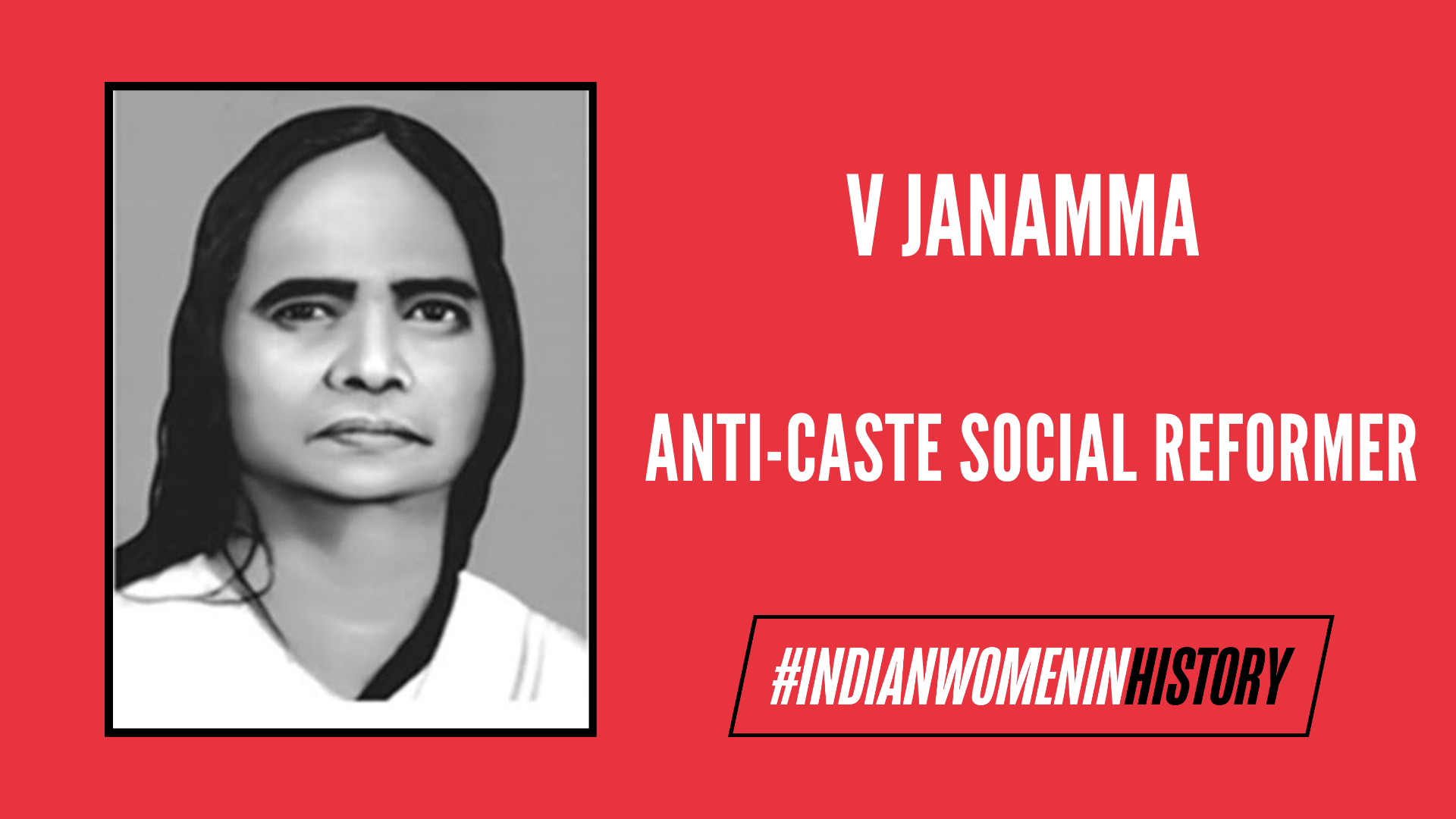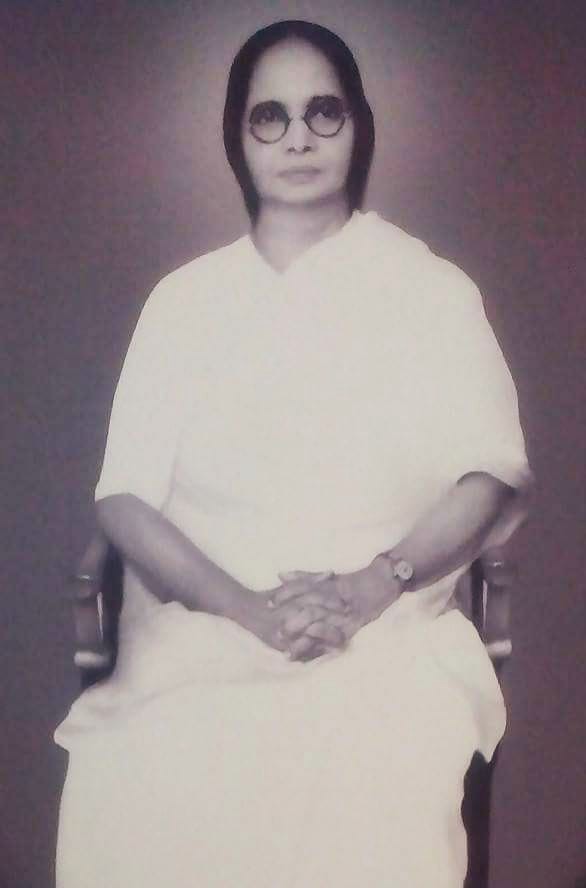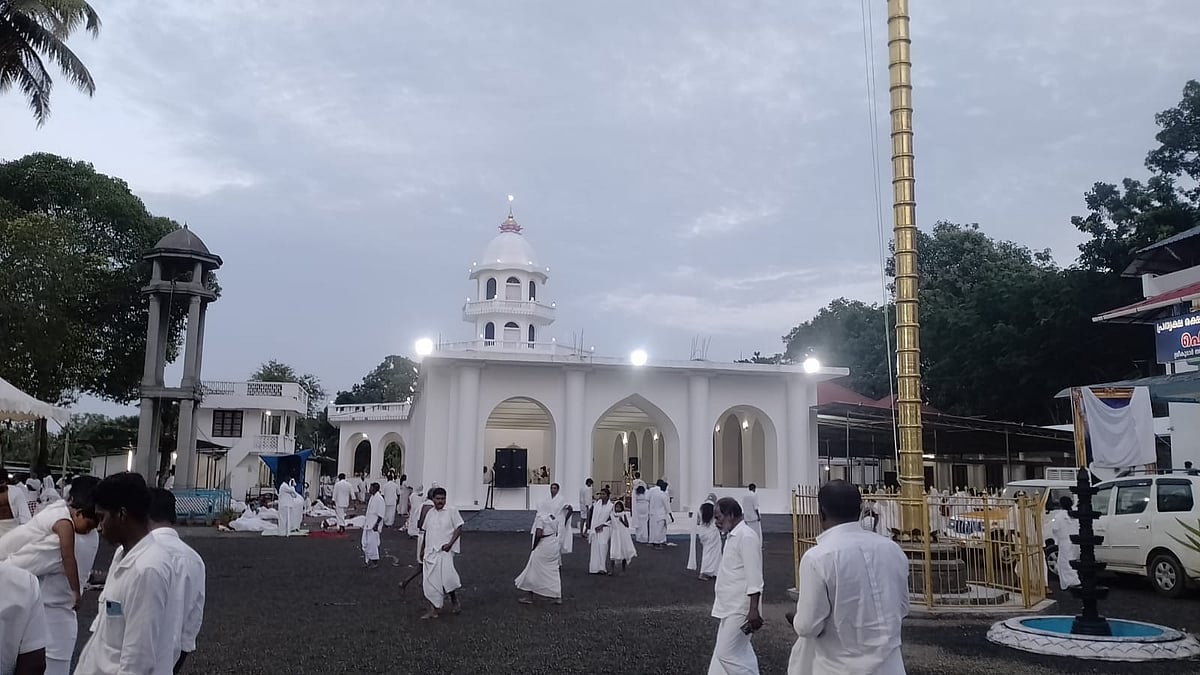It is often seen that a privileged few largely shape mainstream and elite strands of feminism and tend to overlook the voices of women at the grassroots. The struggles, contributions, and lived realities of Adivasi, Dalit, and landless women are frequently left out of dominant feminist narratives. But still, history presents a different story where the most courageous and revolutionary movements have often been led by these very women. Their feminism is not shaped in theory or institutions, but in an open field, which was unconventional for such movements.
V. Janamma, also known as Poyikail Ammachi, is one of such trailblazing figures in India. Born in 1910 in Kerala, she received her early education up to the fourth standard at a Christian school after which, her formal schooling came to an early end. In 1925, at the age of fifteen, she married Poikayil Appachan, a well-known social and spiritual reformer. After marriage, her life was not just confined to being a housewife or a mother.
She actively challenged, along with her husband, the caste based discrimination in Kerala and aimed for spiritual liberation for the oppressed community. Her mission was to build an equal and inclusive community. Janamma’s contribution is not widely documented, but she still resides in the hearts of marginalised women as she brought about a transformative change in their lives. By remembering Janamma, we are reviving feminist histories that are buried in time.
Janamma: leadership and growth of PRDS
Prathyaksha Raksha Daiva Sabha (PRDS) was not only a religious movement, but it was a powerful socio-cultural revolution for the Dalit community initiated and established by Poykayil Sree Kumar Gurudevan, also known as Poykayil Yohanan and Poykayil Appachan. The basis of the movement was to create a space free from caste-based discrimination and to promote a life rooted in self-respect, spiritual equality, and social transformation.
Although historical records rarely highlight her, much less is written about her contributions. Janamma Ammachi, (Ammachi meaning “mother figure”), played a prominent role in the sphere of social justice. Appachan died in 1939, after which she assumed responsibility for carrying the spiritual vision of PRDS and was officially accepted as the president in 1941. During an era when women, especially widows from Dalit communities, were expected to remain within the confines of their homes, Ammachi broke barriers. She took on a leadership role in a male-dominated society and became the spiritual mother and guide for the community.
The presence of Janamma helped strengthen and support PRDS, and particularly among women, she became a source of spiritual guidance and an epitome of courage and compassion.
The presence of Janamma helped strengthen and support PRDS, and particularly among women, she became a source of spiritual guidance and an epitome of courage and compassion. She raised the movement over 46 years and helped spread its message of equality and liberation beyond Kerala to places like Tamil Nadu and Karnataka. Her impact was silent but far-reaching. Janamma’s activism, coming from the Dalit community as a woman, was in itself trailblazing.
Janamma’s work for justice and change
It wouldn’t be wrong to see Janamma as an early intersectional feminist, even if she was never called that in her time. She stood up with her strong leadership in PDRS against all the injustices based on gender, religion, and caste. As a widow and particularly a Dalit woman, many tried to suppress her voice, but she moved with grace and courage. Her role redefined what leadership looked like. She condemned patriarchy along with the savarna ideas, which explicitly state who has the right to become a leader. As a woman of strong faith, dignity, and vision, she continued her struggle against patriarchy and the dominant religious belief and turned her struggle into a path of hope for others.
Under the visionary leadership of Janamma Ammachi, the Prathyaksha Raksha Daiva Sabha (PRDS) underwent a major revival. She launched Adiyardeepam, a publication that promoted social reforms and highlighted the daily struggles of Dalits and was grounded in the PRDS values of equality, dignity, and self-respect. Under the leadership of Janamma, women started taking an active part in PRDS political activities from formally appealing for the right to voice in legislative assemblies to demanding equal civil rights from the Government of Travancore. Through their action, they boldly challenged the deep-rooted injustices based on gender and caste differences.
Janamma established youth and women’s wings within PRDS that even more actively opened up leadership spaces for those long excluded. These weren’t symbolic additions; they were part of a larger redefinition of who could lead, speak, and shape community life. These establishments were a bold departure from conventional gender roles; these platforms for ideas became a space where women were encouraged to speak, lead, and make decisions.
Exclusion from history
Exclusion from history is a very common fate for women like Janamma who come from a marginalised community. It is often observed that pioneering revolutionaries like Janamma are rarely remembered or celebrated due to the dominance of upper-caste and male-centric discourses. Michel Foucault theorises how those who have power in society can influence the knowledge system as well. This is why Janamma, like many other women from marginalised communities, are left unrecognised, which leads to a form of historical subjugation.
Exclusion from history is a very common fate for women like Janamma who come from a marginalised community.
This historical subjugation limits our collective understanding of social movements which are often shaped and nurtured by women from marginalised communities, leading to the perpetuation of inequality by keeping the efforts of people at the grassroots level hidden. Though it is challenging in the present social and political structures, it is necessary for unbiased representation. This revival of history will surely lead to a just and inclusive understanding of history
Janamma’s legacy today
Janamma, who passed away in 1985, dedicated nearly fifty years of her life to shaping the social and spiritual vision of the PRDS. She carried a movement that not only gave the oppressed dignity but also a voice to stand against oppression. Janamma’s work is not well-known, but it is full of courage and conviction.
Janamma, along with preserving the legacy of her husband, became the spiritual mother of PRDS, where she also created her own identity within the movement. Her struggle against caste-based oppression not just led her community through difficult times, but is also full of inspiration and resilience. She played a pivotal role in the lives of Dalit women and widows in Kerala, which was deeply rooted in patriarchy and rigid caste hierarchy, like other parts of the country.
The spiritual centres of PDRS, which spread across Kerala and Tamil Nadu, are examples of her contribution, through which she still lives on in the hearts of people. Janamma and her work, though not given literary recognition, still inspire people. She promoted intersectional resistance in Kerala, which not only makes her a true leader but also a faithful guide and a compassionate mother for her community.
Women leaders like V. Janamma represent the voices of the minority, which is why it is important to write history that is inclusive and respects the activism of these forgotten figures.
References:
https://alablog.in/issues/74/womens-leadership-kerala-renaissance/?utm
https://www.casemine.com/judgement/in/56b49659607dba348f01857a
https://www.wikiwand.com/en/articles/Poykayil_Yohannan
About the author(s)
Himani is a postgraduate in Political Science from Ramjas College, University of Delhi with a keen academic focus on gender, culture and social justice. Her academic and field experience includes research and project coordination in areas such as tribal entrepreneurship, environmental advocacy and community service.








